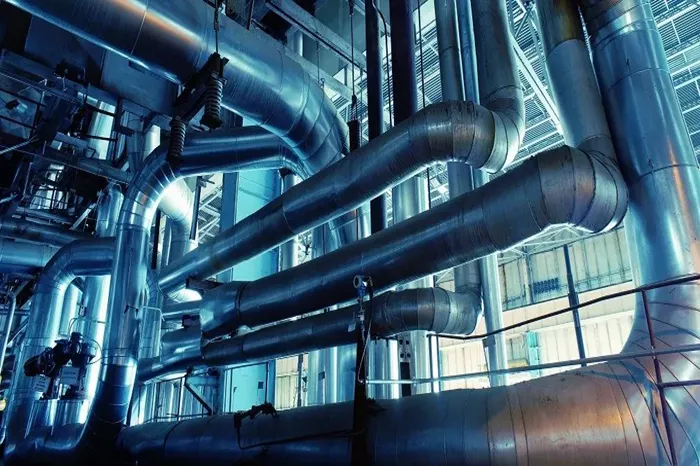Natural gasoline, often referred to as pentanes plus, is a low-boiling liquid hydrocarbon mixture primarily composed of pentanes and heavier hydrocarbons. It is derived from natural gas during the production process, specifically from the extraction of natural gas liquids (NGLs). This gasoline-like liquid is used extensively in various industries due to its unique properties and benefits.
Composition and Production of Natural Gasoline
The composition of natural gasoline includes a mix of hydrocarbons such as pentane (C5H12), isopentane, hexane (C6H14), and other heavier hydrocarbons. The production process involves the separation of these hydrocarbons from the natural gas stream, typically during the initial stages of natural gas processing.
Natural gas is composed mainly of methane (CH4), but it also contains other hydrocarbons like ethane (C2H6), propane (C3H8), and butane (C4H10). When natural gas is processed, these heavier hydrocarbons are extracted and separated into different components, including natural gasoline.
The separation process involves cooling the natural gas to extremely low temperatures, causing the heavier hydrocarbons to condense into liquids. These liquids are then further processed to separate them into individual components, with natural gasoline being one of the key products.
Uses of Natural Gasoline
Natural gasoline has a wide range of applications due to its versatile properties. Some of the primary uses include:
1.Blending Component in Motor Gasoline:
Natural gasoline is often used as a blending component in motor gasoline to improve its octane rating and overall performance. It helps in enhancing the volatility of gasoline, which is essential for efficient engine combustion.
2.Feedstock for Petrochemical Industry:
The petrochemical industry utilizes natural gasoline as a feedstock for producing various chemicals and plastics. It serves as a raw material for the production of ethylene, propylene, and other important petrochemical products.
3.Solvent in Industrial Applications:
Natural gasoline is used as a solvent in various industrial applications, including cleaning and degreasing operations. Its ability to dissolve oils and greases makes it valuable in manufacturing processes.
4.Fuel for Internal Combustion Engines:
In some cases, natural gasoline can be used directly as a fuel for internal combustion engines, particularly in older or specialized engines designed to run on low-octane fuels.
5.Diluent in Heavy Oil Production:
Natural gasoline is used as a diluent in heavy oil production to reduce the viscosity of heavy crude oil, making it easier to transport through pipelines.
Benefits of Natural Gasoline
The use of natural gasoline offers several benefits, making it a valuable component in various industries:
1.Improved Fuel Performance:
When used as a blending component in motor gasoline, natural gasoline enhances the fuel’s octane rating and volatility. This results in better engine performance, reduced knocking, and improved fuel efficiency.
2.Versatility in Applications:
Natural gasoline’s unique properties make it suitable for a wide range of applications, from fuel blending to petrochemical feedstock. Its versatility ensures that it can be utilized effectively across different industries.
3.Environmental Benefits:
Compared to heavier hydrocarbons, natural gasoline has a lower carbon footprint and produces fewer greenhouse gas emissions when used as a fuel. This makes it a more environmentally friendly option in certain applications.
4.Economic Advantages:
The production and use of natural gasoline can provide economic benefits, particularly in regions with abundant natural gas resources. It can contribute to energy security and reduce reliance on imported fuels.
See also: What Are The Grades Of Gasoline?
Challenges and Considerations
Despite its benefits, the use of natural gasoline also presents some challenges and considerations:
1.Volatility and Storage:
Natural gasoline is highly volatile, which means it can evaporate quickly and pose risks during storage and transportation. Proper handling and storage measures are essential to ensure safety.
2.Compatibility with Modern Engines:
While natural gasoline can be used in certain engines, it may not be compatible with modern, high-performance engines designed to run on higher-octane fuels. This limits its direct use as a motor fuel.
3.Environmental Impact:
Although natural gasoline produces fewer emissions than some other hydrocarbons, it is still a fossil fuel and contributes to greenhouse gas emissions. The environmental impact of its production and use needs to be carefully managed.
Future Prospects of Natural Gasoline
The future of natural gasoline will likely be influenced by advancements in technology, changes in energy policies, and the ongoing transition towards cleaner energy sources. Some potential future developments include:
1.Improved Processing Technologies:
Advances in processing technologies could enhance the efficiency of natural gasoline production, reducing costs and environmental impact. Innovations in separation and purification processes may lead to higher yields and better-quality products.
2.Integration with Renewable Energy:
The integration of natural gasoline with renewable energy sources, such as biofuels, could create hybrid fuels that offer both performance benefits and reduced environmental impact. Research into such blends is ongoing and may provide new opportunities for natural gasoline use.
3.Regulatory Changes:
Changes in energy policies and regulations, particularly those aimed at reducing carbon emissions, could impact the demand for natural gasoline. Stricter emissions standards and incentives for cleaner fuels may shape the market dynamics.
4.Increased Use in Developing Regions:
Developing regions with growing energy demands may see increased use of natural gasoline as a cost-effective and locally available fuel source. Its role in supporting energy access and economic development could be significant.
Conclusion
Natural gasoline is a versatile and valuable component derived from natural gas. Its unique properties make it suitable for a wide range of applications, from fuel blending to petrochemical production. While it offers several benefits, including improved fuel performance and environmental advantages, it also presents challenges related to volatility and compatibility with modern engines. The future of natural gasoline will likely be shaped by technological advancements, regulatory changes, and the ongoing transition towards cleaner energy sources. As the energy landscape evolves, natural gasoline will continue to play an important role in various industries, contributing to both economic and environmental goals.
Related topics:

